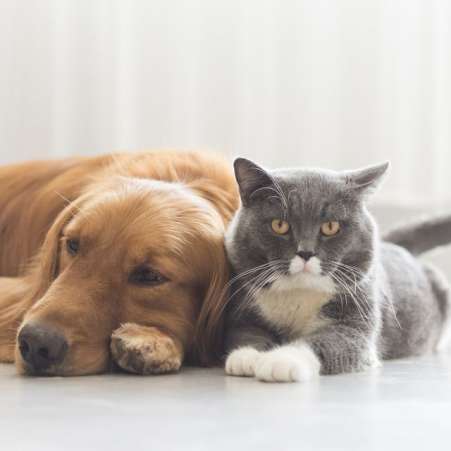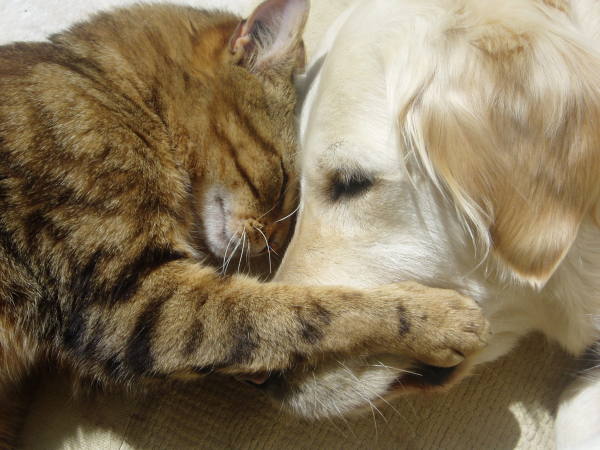Older Pets
Our pets, like their owners, are living longer for a number of reasons, because of advances in veterinary medicine enabling vets to successfully diagnose and treat more conditions, better diet and preventative health care such as heartworm prevention. It is always a good idea to look at the changes you need to make in the way you look after your pet as they age. Remember that in general cats are seniors at around 7 years of age, the equivalent to 56-60 human years. With dogs it is a little more complex and ageing is linked to your dogs weight and breed size, giant and large breeds are mature at 5-6 years while medium dogs reach senior years at around 8 years and toy and small breeds are mature at 9-10 years. If you look at the statistics there are 36% of dogs and 40 % of cats that are in the mature category.
The changes associated with ageing often include reduced activity levels, decreased sensitivity to hearing, sight, taste and smell, changes in body weight and condition, specific health problems and behavioural changes that can include senility and dementia type symptoms and toileting changes eg old cats can forget they are litter trained.
Many senior pets remain healthy and active for most of their old age, the risk of developing a number of serious health problems increases with age. These include osteo-arthritis, kidney problems, liver disease, problems associated with obesity, dental disease, endocrine disease, heart disease and cancers.


The changes associated with ageing often include reduced activity levels, decreased sensitivity to hearing, sight, taste and smell, changes in body weight and condition, specific health problems and behavioural changes that can include senility and dementia type symptoms and toileting changes eg old cats can forget they are litter trained.
It is important to talk to your vet and have a plan to examine and screen your older pet to recognise any disease process present and often the course of a disease can be markedly influenced by the presence of another disease so blood screening is more important in your mature pet.
Talk to your vet about the nutritional requirements for your mature pet and the points to consider include: energy requirements, highly digestible protein sources, joint health, skin and coat health, cognitive function and antioxidants. There are mature dog and cat foods available that provide a complete and balanced diet for the older pet and their changed dietary requirements. These include high palatability and digestibility, additional vitamin, antioxidants and trace elements, as well as additives for joint health, skin and coat health and urinary tract health. Obviously to keep your mature pet looking good and feeling great does require a bit more attention than when they were younger but they are worth it.
